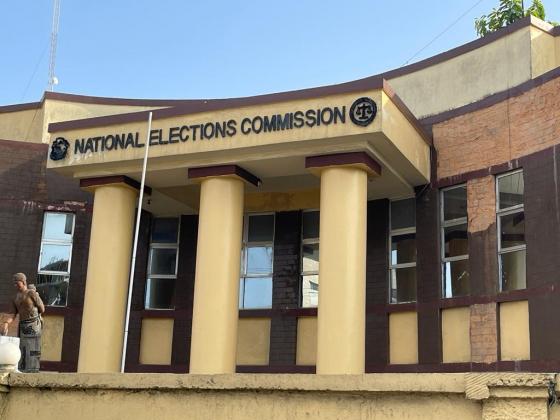Liberia: ‘Biometric Voter Registration Not Silver Bullet,’ Says ECC

— Following the NEC's announcement of the use of a biometric system for the conduct of 2023 elections
The Elections Coordinating Committee (ECC) has warned that the National Elections Commission plan to use a Biometric Voter Registration (BVR) system to prevent electoral fraud is not a silver bullet.
The ECC, which is Liberia’s largest domestic election observation network with diverse competencies, experiences, and expertise in democracy, elections, and governance established since 2010, noted that the electoral body's transition to a biometric system is not without risks as the system has its own pros and cons.
The ECC's concern comes as biometric voting systems in times past have led to voters disenfranchisement. This is due to unexpected hitches the system can encounter at any point in time.
However, the ECC release said the technology, if it is set up properly and in a timely manner, can add value to the quality of the electoral process, thereby minimizing double registration, automatic de-duplication fraud, and manipulation of the voter roll.
“This is the first time the NEC will be using the technology for the registration of voters but the transition is not free of risks. The NEC, among other things, needs to inform the public which model of the Biometric Voter Registration (BVR) has been selected,” the ECC release added.
The NEC’s planned move to BVR comes at a time when it is expected that more than two million Liberians will be eligible to vote in the 2023 presidential and legislative elections. The biometric system would help to better secure the NEC voter roll and the integrity of the elections process: voter registration, voter verification, and the transmission of results.
The NEC has for years been under pressure to dash its optical manual registration (OMR) system. The OMR system, for many, does not improve the accountability and transparency of electoral processes and is usually tainted by controversy and mistrust.
In a biometric voting system, the voters are registered based on their unique physical characteristics like fingerprints and even facial recognition.
“The advantages of biometric voter registration include prevention of multiple voter registrations, ensuring that there is the accuracy of the information collected and creation of voter identification for each voter,” said the NEC chairperson Davidetta Browne Lansanah in defense of the system. “It also has the ability to trace all acts of impersonation, remove all duplicated records of voter registration, and eradication of issues of unintentional errors during the data entry process.”
However, the ECC noted that the BVR may eradicate double registration, it will not solve the issue of voter trucking which is associated with vote buying, a phenomenon that is becoming institutionalized in the country’s fragile democracy.
“And what are the pros and cons associated with its usage should inform the public about the profile of the vendor that was selected, and its track record in managing a BVR system and inform the public on the total cost for the purchase and installation of the technology in order to assess its efficiency,” it added.
Meanwhile, the ECC has noted that it is deeply concerned that the voter registration exercise will commence before the completion of the planned national census. Article 80 (e) of the Liberian Constitution provides constituencies be apportioned by the NEC in accordance with the new population figures.
The ECC said it is of the view that the registration exercise should take place after the conduct of the census and demarcation of the constituencies based on the population size in order to avoid the misplacement of voters.
“In addition, the official launch of CVE is planned for October 7, 2022. This is approximately two months to the commencement of the voter registration process which is on December 15, 2022. Considering that the NEC is moving on to a completely new system that has never been used before nor has it been piloted, two months for CVE is not sufficient to ensure adequate awareness and participation of citizens or voters.
“The ECC has observed that the one-month period allocated for political campaigns is not enough and should be extended to allow citizens to engage more with the candidates,” the ECC added. “The limited time for the campaign also has the tendency to create increased tension as a result of two or more parties or candidates campaigning at the same time in the same location which has a potential to increase electoral violence.”
The ECC added that the NEC needs to strengthen its engagement with stakeholders including political parties and civil society organizations on the procurement and installation of the BVR to engender national ownership of the process and increased CVE time so that the public is properly educated on the BVR to mitigate some of the fears and suspicion that citizens may have about the BVR.
It noted that “time for campaigning be reconsidered and extended to two months so as to ensure a level playing field for all candidates and political parties.”
